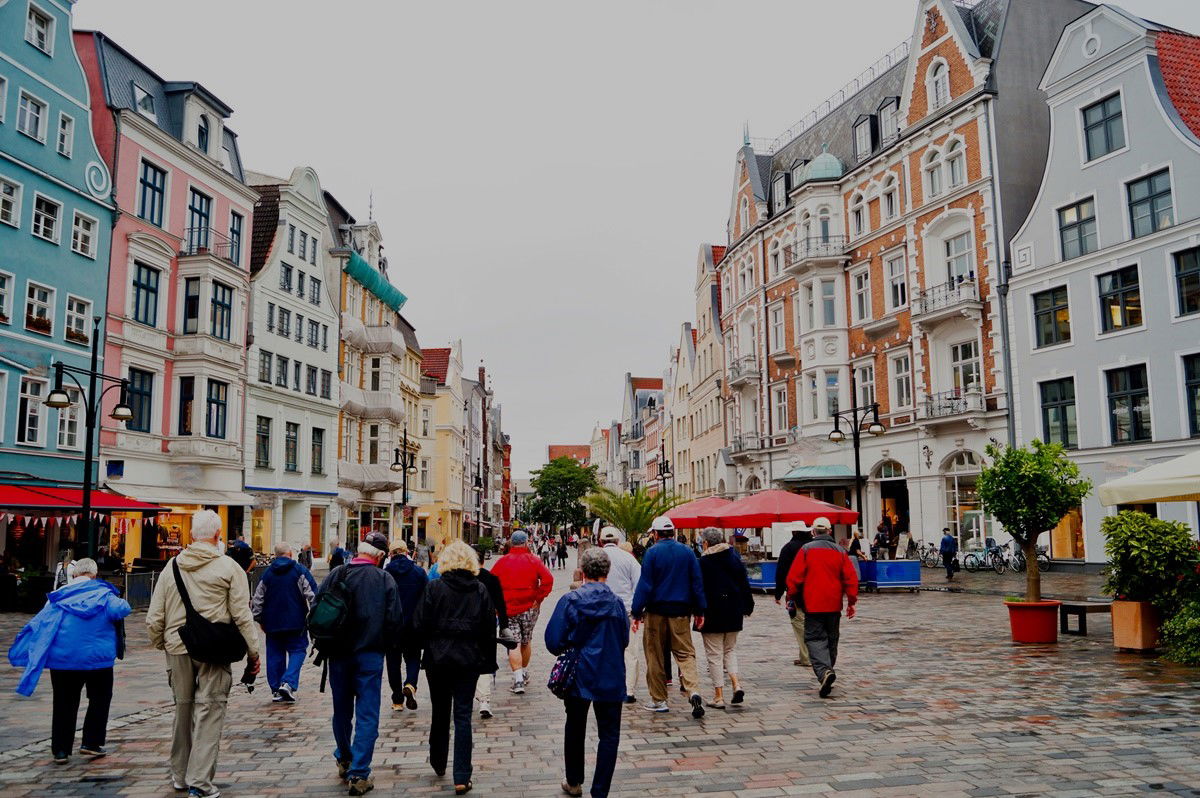
Tips for Everyday Life in Germany
Have you just emigrated to Germany or are you considering the idea of emigrating? Would you like to find out more about life and customs in Germany? In this article, we will provide you with tips for everyday life in Germany. This will give you a general idea about the accuracy of certain German stereotypes and on top of that we offer some great choices for your leisure time.
Learning German
In many countries, especially in Scandinavia, you can get by very well with English in everyday life. In Germany, however, you will quickly reach your limits both in everyday life and at work. Be it at the doctor's, when shopping, etc. You will definitely be able to communicate better in German than in English. In large cities, however, you might still get a little further with English than in rural areas. Therefore, it is important that you learn German if you want to emigrate to Germany. In order to do this, you may want to attend a language course at the beginning. Later on, you can learn the language more independently, for example with podcasts, books, films, etc.
- Language course
A language course also offers the opportunity to get to know other people who have just come to Germany. This is a great chance for you to share your experiences together.
- Listening to podcasts
If you already know some German, you could simply listen to German podcasts. This will improve your pronunciation and your everyday understanding of German. - Watching films in German
You can also watch films in German, with subtitles offering an even better learning experience. The more often you listen to German, the better you will memorise the language. - Reading books in German
In order to improve your understanding of written German, reading will help you to get used to it. You may want to start with children's or young adult books before you move on to adult literature. - Meeting people
Meet other people who speak German. These could be people from your language course, work colleagues, neighbours, etc. Of course, it is also important to speak mainly German and not lapse too much into English or some other language. ;-)
Integration Course
If finding out some more about living in Germany and about where to get support there is just as important to you as learning the German language, an integration course is a good option for you. Depending on where you come from and how good your language skills are, such a course is either voluntary or compulsory. For example, if you come from an EU country, an integration course is voluntary. If you come from a non-EU country, it may be compulsory for you. People from non-EU countries require an authorisation certificate to participate, which they can obtain from the foreigners authority.
The integration course consists of a language course and an orientation course. Here you will learn everything about living in Germany, such as:
- Culture and politics
- Living together in Germany
- Work, career and job interviews
- Shopping in Germany
- Visits to the authorities
- Writing emails and letters schreiben
- etc.
Of course, exchanging experiences with the other participants on the course is also particularly valuable. They all have one thing in common: they have just arrived in Germany and are trying to find their way in a foreign country. So you can help each other and give each other tips. You also have a direct person of contact if you have any questions.
German Holidays
You will certainly learn a lot about German festivals and public holidays during your integration course. But here is some important information beforehand. Many different cultures and religions come together in Germany and of course they are all allowed to celebrate their own holidays. However, the public holidays on which you have time off are mainly based on Christian events. It is important to know that not every federal state has the same number of public holidays.
- New Year on 1 January (all federal states)
- Epiphany on 6 January (in some federal states): The three kings who visited the newborn baby Jesus are celebrated.
- International Women's Day on 8 March (in some federal states)
- Easter changing date (all federal states): Easter consists of Good Friday, Easter Sunday and Easter Monday and is a Christian festival celebrating the resurrection of Jesus.
- Labour Day on 1 May (all federal states): Contrary to what the name suggests, there is no work on this day. Originally, the labour movement came together on this day for peaceful protests and took to the streets.
- Ascension Day changing date (all federal states): On this day, 40 days after his resurrection, Jesus is said to have ascended into heaven.
- Pentecost, alternating date (all federal states): Pentecost consists of Pentecost Sunday and Pentecost Monday. On Whit Monday, 50 days after the resurrection of Jesus, the Holy Spirit is said to have descended on Jesus' disciples.
- Corpus Christi, changing date (in some federal states): Corpus Christi is celebrated 60 days after the resurrection of Jesus and is therefore also a Christian holiday.
- Assumption Day on 15 August (in some federal states): This holiday is also Christian in nature, as it is celebrated on this day that Mary, the mother of Jesus, ascended into heaven.
- German Unity Day on 3 October (nationwide): The most significant event in German history is celebrated on this day: the reunification of the GDR and the FRG, the fall of the Berlin Wall.
- Reformation Day on 31 October (in some federal states): This day is particularly significant for Protestant Christians, as it was on 31 October 1517 that Martin Luther proclaimed his theses and brought about the Reformation of the Church - the beginning of the Protestant Church.
- All Saints' Day on 1 November (in some federal states): This public holiday also has a Christian background, as the saints are commemorated on this day.
- Christmas from 24 to 26 December (all federal states): Christmas in Germany consists of three days, Christmas itself as well as Christmas Day and Boxing Day. The birth of Jesus Christ is celebrated
Even though many public holidays have a Christian background, they are very often no longer celebrated according to Christian custom. Instead, public holidays, especially Christmas and Easter, have become an occasion to spend valuable time together with family and friends.
What to Do in Your Leisure Time
You already know which days you have off in addition to your holidays. But what is the best way to spend your free time in Germany? What does Germany offer?
- Join a club
Every town and district in Germany has various clubs you can join. These are mostly classic clubs such as football, handball, volleyball, but also rowing, tennis, billiards, darts, etc. The special thing about it: You can enjoy your hobby and get to know people from your neighbourhood at the same time. Explore which clubs there are in your neighbourhood. - Volkshochschule (VHS-Kurse)
In Germany, so-called Volkshochschulkurse (adult education courses, or in short VHS courses) are offered. Anyone can register in exchange for a small fee. The courses offered range from artistic activities such as sewing, knitting, drawing and pottery to various language courses, IT, physics and biology. You can not only learn new things here, but also meet new people. - Communities, youth centres, family centres
Many cities in Germany have cultural, youth and family centres. Find out if there is one near you and meet people from your neighbourhood. - Daytrip by train
With the popular Deutschlandticket, you can explore all cities in Germany by regional train for just 49 euros a month. As this ticket is only valid for regional trains, you may want to choose cities nearby. For example, you can set off in the morning and return in the evening. - Visit a musem
In Germany you have innumerable opportunities when it comes to museums. In addition to that, many museums offer discounted tickets on certain days of the week. - Spending the summer
There are numerous mountains in Germany which are great if you like hiking and offers the opportunity to enjoy wonderful views. You can also go cycling in the summer. You can also rent bikes in many cities. There are also many street and city festivals in Germany in summer where you can meet new people. - Spending the winter
Winters in Germany also offer a lot of opportunities to enjoy your leisure time. You can go skiing in the mountains. Many clubs offer a bus tour to the mountains. You can rent equipment for skiing or snowboarding. And of course, Germany is also known for its numerous Christmas markets, which are a sort of street festival in winter. There are many food and drink stalls here, as well as wonderful handcrafted decorations and other items to marvel at.
Useful Everday Knowledge
Like all countries, Germany has its own peculiarities that you will stumble across in everyday life. That is why our lingoqueens and lingokings want to share useful tips for everyday life so you are prepared for things and customs which might seem odd to you ;-)
Katharina
Elizabeth
Flo
Michelle
Jessi
Andrea
More information on immigrating to Germany
About the author
Katharina Weckend, Content & SEO Manager
Katharina joined lingoking as a Content and SEO Manager in 2024. She handles our content and SEO strategy and writes texts for our website, guide and other lingoking media. “I am happy I get to pass on knowledge in our lingoking guide and help break down language barriers.”




